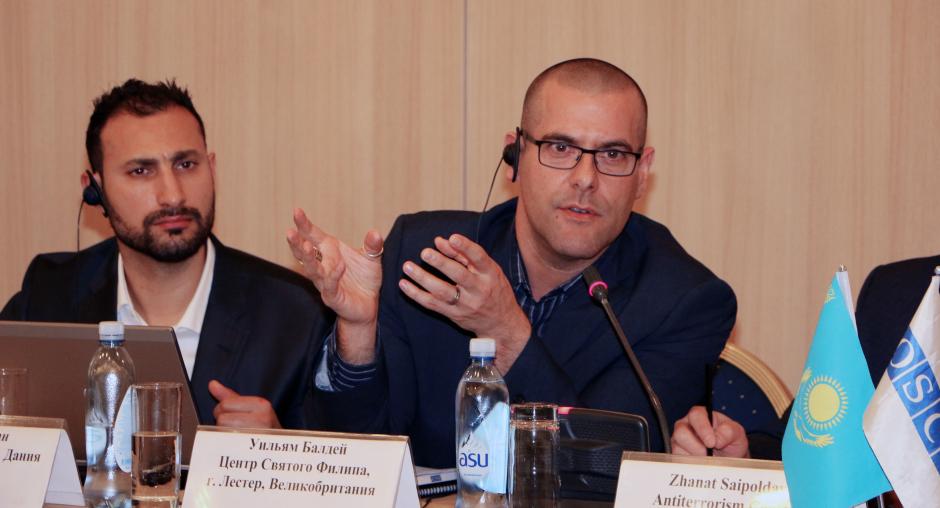OSCE promotes co-operation with civil society in countering violent extremism in Kazakhstan

ASTANA, 10 November 2015 – The role and participation of civil society in preventing and countering violent extremism was the topic of an OSCE-supported roundtable discussion, which began today in Astana.
The two-day event was co-organized by the OSCE Programme Office in Astana with Kazakhstan’s Anti-Terrorism Centre for some 40 high-level officials of the National Security Committee, the Prosecutor General’s Office, the Anti-Terrorism Centre, the Supreme Court, Ministries of the Interior, Education and Science, Justice , the Religious Affairs Committee of the Culture and Information Ministry, the Emergency Situations Committee of the Interior Ministry, the Astana City Administration as well as representatives of non-governmental organizations and academia.
Participants will review how civil society works in different countries to prevent violent radicalization of people in their communities, how they interact with the state institutions and what instruments could be employed to work with at-risk groups. Experts from Denmark, Kyrgyzstan, Tajikistan and the United Kingdom will share their experiences and present case studies from their countries. The discussions will focus on preventive measures, including community outreach, mentoring as well as the driving forces and motivations of the at-risk groups.
“To strengthen non-repressive ways of addressing violent extremism we should identify at-risk groups and ways of victims’ recruitment,” said Natalia Zarudna, Head of OSCE Programme Office in Astana. “To this end, we need to enhance capacities of educational institutions, educators, journalists, public figures and, most importantly, civil society, for them to effectively lead the counter narrative campaign, most notably in the internet.”
Zhanat Saypoldayev, Head of the Anti-Terrorism Centre’s Headquarters, said: “No country can fight terrorism on its own. Therefore, it is important to join efforts inside the international community and within each of the nations to achieve tangible results in preventing and countering violent extremism and radicalization.” He underlined the importance of using targeted non-repressive methods as the most effective way to address this threat.
As a result of the discussions, a set of recommendations will be developed for the parliament, government and local administrations on enhancing their interaction and co-operation with civil society in countering and preventing terrorism.
The event is part of the OSCE Programme Office in Astana's activities to enhance the host country’s capacities to prevent and counter violent extremism and radicalization that lead to terrorism.
